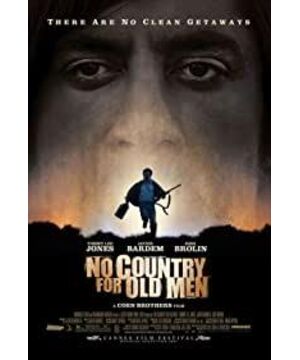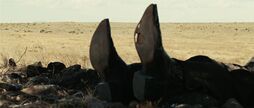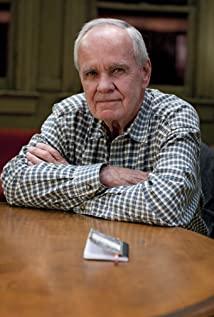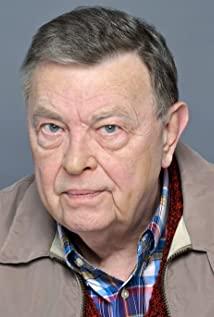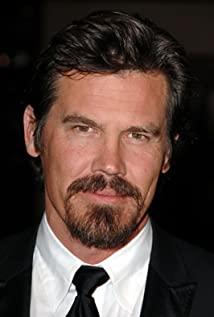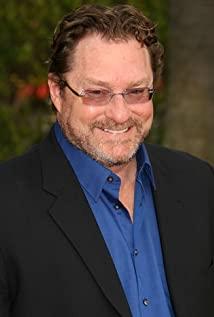At the beginning of the film, Tommy Lee Jones's voice whispered in a flat tone. He mentioned a young killer who had been sent to the electric chair by his own hands. The boy killed his 14-year-old girlfriend. The newspapers at the time described it as a crime of passion, "but he told me there was no passion. He said that he had wanted to kill people as long as he could remember. If I let him leave here, he would kill people again. He knew himself. I’ll go to hell, and I’ll be there in 15 minutes."
At first glance, these words seem to come from Cormac McCarthy's original novel, but they are not. In addition, compared to the original, this narration has a stronger impact on expression. When I get the DVD of this movie, I will listen to that passage several times; it is very special, Jones’ voice is so precise and subtle, it sets the tone for the whole movie: a surprise rather than Examining pure evil with hateful eyes, as if shocked by the existence of such a ruthless creature.
This person is named Anton Sigel. I'm not sure how to pronounce his last name. This is exactly in line with McCarthy's consistent wording style, which is particularly evident in his masterpiece "Satri". In my opinion, this is a construction detail of his writing career: the focus is not on how it sounds or what it means, but on the brushwork it adds to the sentence. Siegl (Javier Baden) was tall, with his head down and shoulders hanging down when he walked, and he had dark, rough black hair. He smiled extremely wretched. He carried a can of compressed air with him to kill with a reed gun: he put a tube on the victim's head. They were often pierced by the compressed air before they could react, and then he slowly retracted the gun head. The whole process was done in one go, as if doing a trivial thing.
Sigel is only one part of the tortuous plot. Sheriff Bell (Tommy Lee Jones) and the old cowboy Moss (Josh Brolin) are the other two main characters. Moss and his wife lived in a dilapidated RV. One day, while hunting in the desert, he accidentally ran into an endgame where the drug transaction failed: The vehicles were surrounded by a circle like an old wagon, and almost everyone on the scene died. Even dogs are not immune. Behind a pickup truck, several bags of drugs were neatly stacked. Moss immediately realized that one thing was missing-money. Finally, in the shade of a tree in the distance, he found it beside a dying person.
The next plot will revolve around 2 million US dollars. Moss wants to take it for himself, Hegel wants to snatch it from it, and Sheriff Bell tries to prevent a massacre. In addition, there are Moss's childish wife, arrogant bounty hunter, behind-the-scenes merchants who track money, and a series of people who unfortunately encountered Hegel.
"Old Nowhere" is one of the best movies of the Coen brothers, even when compared with "Ice Blood Storm". Although it contains elements of horror and hunting, it is essentially a study of characters and an examination of how people deal with the evils of pure reason. No one can understand Sigel, he is so evil, sometimes even ridiculous. "He has his own principles," said the bounty hunter, who knew something about him.
The dialogue in another scene is the best of the year in my mind, and it is also a microcosm of the film's play style. Sigel entered a dilapidated gas station and played a word game with an old cashier, who became more and more nervous in his word trap. Apparently they were discussing whether Hegel would kill the old man. Sigel had no idea in his mind at this time. Suddenly, without any explanation, he asked the old man to guess the coin to determine his life and death. Listen to what they say, the way they say it, how they hint at a stake, and how they know the timing. You can't help but applaud the words of the Coen brothers and McCarthy.
Facts have proved that acquisition is far easier than possession. Moss lived in a humble hotel, trying to avoid hunting. The scenes of the film have been carefully designed so that everyone can perceive each other. Although Moss was running away, he could never get rid of it. Hegel always follows the shadow, he is like the doom of Moss' destiny, not rushing or slowing down, and closely following at a weird pace.
The film is a perfect reproduction of time, place, characters, moral choices, immoral inevitability, humanity and destiny. At the same time, the photography of Roger Dickins, the editing of the Coen brothers, and the music of Carter Burwell all together make up this stunning, desolate and lonely movie. Just as McCarthy has always emphasized themes in his other works, this film expresses the weakness and helplessness of ordinary people in the face of severe injustice. The film also expresses the care for the characters, sympathizes with them, and weaves the voices of the characters with heart, as if it came from a dream, not a word.
The construction of many scenes in "Old Nowhere" is so perfect that the audience expects a continuity, but they produce a certain emotional attraction that naturally leads the audience to the next scene. Another movie that makes me feel the same is "Ice Blood Storm". From this perspective, such a movie is like a miracle.
Public number: Su-evaluation
View more about No Country for Old Men reviews


